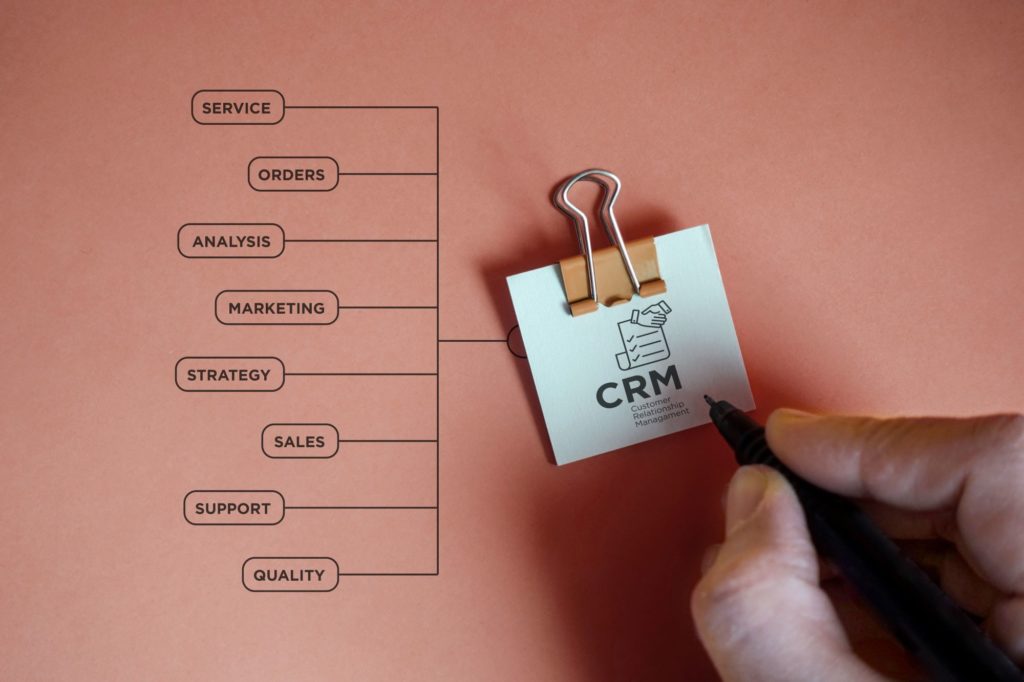
Exciting News! Outbase unveils its groundbreaking AI Assistant – your new campaign creation co-pilot. It's a smarter, faster way to reach your sales goals!



Whether you’re a budding entrepreneur launching a start-up or an established business seeking innovative strategies to fuel growth, embracing a CRM can offer benefits that extend well beyond the realm of customer relationships.
And while the fundamental purpose of a CRM is centered around customer-centric activities, its potential reaches much deeper than that. From streamlining internal processes and enhancing collaboration to nurturing leads and optimizing marketing efforts, a CRM can be a game-changer in unlocking untapped potential and propelling your business forward.
CRM stands for Customer Relationship Management. It refers to a system or approach used by businesses to manage and analyze interactions with current and potential customers. A CRM system is designed to:
A CRM system typically includes features such as contact management, lead and opportunity management, sales and pipeline tracking, customer communication history, task and activity management, and reporting and analytics.
It allows businesses to effectively manage their interactions with customers, track sales processes, monitor customer preferences and behavior, and ultimately improve customer satisfaction and retention.
It might feel like a CRM is just an add-on, but it’s actually a very important part of successful prospecting. Imagine you are organizing your week, but you don’t have a calendar or diary to use, just lots of scraps of paper with meetings at different times. You’d get confused quickly, and things would get forgotten. That’s what it’s like trying to organize your prospecting without a CRM.
Let’s take a look at some of the most important reasons to invest in a CRM 👇.
Searching through emails and notes to remember past conversations or retrieve important information like a prospect’s phone number is not only a time-consuming task, it also detracts from relationship-building and engagement.
Forgetting what email was last sent risks the unfortunate scenario of duplicating messages, which is a surefire way to lose the interest and trust of potential customers.
With the implementation of a CRM, a complete record of each interaction becomes easily accessible with just a single click. This efficient system enables the entire sales team to view and track interactions, fostering a collaborative approach and enhancing overall productivity.
CRM platforms offer sales teams a comprehensive overview of their pipeline, categorized by different stages of progress, along with an organized opportunity queue (you can use lead scoring to help with this).
Using the filtering options, each sales rep can effortlessly move from a holistic view of the team’s performance to a detailed analysis of their individual progress and current status.
The transparency provided by CRM platforms eliminates any uncertainty regarding sales quotas. Reps can easily track their progress, and managers can promptly identify areas that might need more attention.
CRMs go beyond simplifying tasks for sales reps. They enhance communication and information sharing across the entire business, even across multiple locations.
For example, when a rep leaves, or territories are rearranged, the CRM provides easy access to past conversations and interests, eliminating the need for extensive searches or spreadsheets. Handovers become seamless as information is centralized and readily available.
CRMs play a vital role in ensuring that sales representatives consistently track their activities and interactions, leading to streamlined reporting processes. Gone are the days of painstakingly piecing together information, as analysis can now be effortlessly conducted with just a click of a button.
A CRM is especially important when it comes to analyzing the activities of your sales team.
If you have plans for growth (which is essential for any thriving business), the bigger picture will inevitably expand over time, encompassing greater opportunities and challenges.
In the early stages, a well-structured and organized spreadsheet may adequately serve your needs. However, as you review your business plan, it becomes apparent that your aspirations extend far beyond the present. In just a few years, your forecast indicates a remarkable tripling of your revenue, indicating your ambition and commitment to success.
HubSpot’s free CRM software is a great place to start when looking at customer relationship management. HubSpot is a comprehensive CRM platform that encompasses the essential software, integrations, and resources required to establish seamless connections between marketing, sales, content management, and customer service.
| Outbase has HubSpot integration to make CRM integration seamless. |
monday.com offer a number of different tools, including sales CRM software. It provides a visual and intuitive interface that allows teams to plan, track, and manage various projects, tasks, and workflows – including their prospects’ journey through the sales process.
Pipedrive provides an award-winning CRM. It provides a user-friendly interface and a range of tools and features to track leads, manage deals, and organize sales activities. The platform is known for its simplicity and focus on sales pipeline management, making it popular among sales teams and small to medium-sized businesses.
Zoho CRM is known for its user-friendly interface, scalability, and flexibility, catering to the needs of businesses of all sizes, from small startups to large enterprises. It also provides integration capabilities with other Zoho applications and third-party software, allowing for seamless data flow and enhancing overall productivity and efficiency in managing customer relationships.
By combining the use of Outbase and a CRM, you can significantly enhance your sales and customer relationship management processes. An integrated approach ensures that all prospect data and communication history are centralized and easily accessible, enabling efficient lead nurturing, streamlined follow-ups, and effective sales pipeline management.